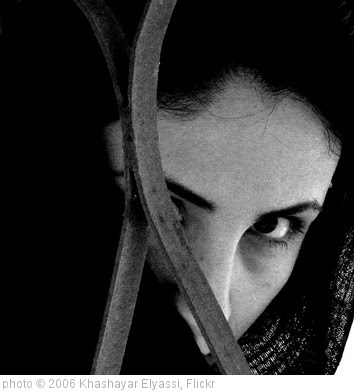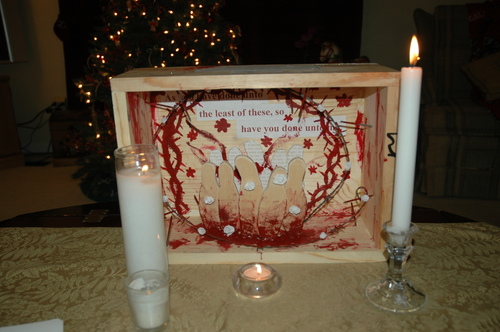In honor of the International Day for the Elimination of Violence Against Women, I'm reposting this excerpt from A Year of Biblical Womanhood.
"There is no agony like bearing an untold story inside of you."
—Maya Angelou
I’m glad I have a biblical name.
It’s a name as old as the storied shepherdess of Paddan Aram—a woman so captivating her husband pledged seven years of service in exchange for her hand, a woman whose determination to bear children sent her digging for mandrakes and bargaining with God, a woman brazen enough to steal her father’s idols and hide them in a camel saddle, a woman who took her last breath on the side of the road, giving birth, a woman whose tomb survived obscurity, conquest, earthquakes, and riots to become one of the most venerated and contested sites of the Holy Land.
Beautiful, impetuous, jealous Rachel. Rachel who fought to legitimize her existence the only way she knew how. Rachel who, though it killed her, won.
With Rachel, I notice the details. I absorb her stories as a child does, wide-eyed and attentive, the distance between long ago and yesterday as close as a memory. And like a child, I long for more, wishing at times that I could sit beneath Anita Diamant’s fictionalized Red Tent, where Dinah learned the history of her family from four mothers—Leah, Rachel, Bilhah, and Zilpah—who Dinah says “held my face between their hands and made me swear to remember.”
We recall with ease the narratives of Scripture that include a triumphant climax—a battle won, a giant slain, chariots swallowed by the sea. But for all of its glory and grandeur, the Bible contains a darkness you will only notice if you pay attention, for it is hidden in the details, whispered in the stories of women.
My quest for biblical womanhood led me to these stories late at night, long after Dan had gone to sleep, and I conducted my nightly research by his side in bed, stacks of Bibles and commentaries and legal pads threatening to swallow him should he roll over. The darkest of these stories mingled with my dreams, and I awoke the next morning startled as if I’d been told a terrible secret.
Perhaps the most troubling of the dark stories comes from the lawless period of Judges.
Jephthah was a mighty warrior of Gilead and the son of a prostitute. Banished from the city by Gilead’s legitimate sons, he took up with a gang of outlaws in the land of Tob. Jephthah must have earned a reputation as a valiant fighter because, years later, when the Gileadites faced war with the Ammonites, the elders summoned Jephthah and asked him to command their forces.
When Jephthah reminded them that they had expelled him from the city, they promised to make him their leader if he agreed. The opportunity to rule over those who once despised him proved too much for Jephthah to resist. As Jephthah charged into battle with his countrymen behind him, filled with “the Spirit of the Lord” (Judges 11:29), he made a promise to God: “If you give the Ammonites into my hands, whatever comes out of the door of my house to meet me when I return in triumph from the Ammonites will be the Lord’s, and I will sacrifice it as a burnt offering” (v. 30).
The text reports that God indeed gave victory to Jephthah. He and his troops devastated twenty Ammonite towns, thus deterring the Ammonite king from further attacks. When Jephthah returned home, glowing with sweat and triumph, “who should come out to meet him but his daughter, dancing to the sound of tambourines” (v. 34). She was his only child. The Bible never reveals her name.
When he saw her, Jephthah tore his clothes and wept. Surely he had expected an animal to come wandering out of the first floor of his home where they would have been stabled, not his daughter. He told his daughter of his vow and said he could not break it. The young girl resolutely accepted her fate. She asked only that she be granted two months to roam the hills and weep with her friends over a life cut short.
Unlike the familiar story of Isaac, this one ends without divine intervention. Jephthah fulfilled his promise and killed his daughter in God’s name. No ram was heard bleating from the thicket. No protest was issued from the clouds. No tomb was erected to mark the place where she lay.
But the women of Israel remembered.
Wrote the narrator, “From this comes the Israelite tradition that each year the young women of Israel go out for four days to commemorate the daughter of Jephthah” (vv. 39–40).
They could not protect her life, but they could protect her dignity by retelling her story—year after year, for four days, in a mysterious and subversive ceremony that perhaps led the women of Israel back to thesame hills in which Jephthah’s daughter wandered before her death. It was a tradition that appears to have continued through the writing of the book of Judges. But it is a tradition lost to the waxing and waning of time, no longer marked by the daughters of the Abrahamic faiths.
I wanted to do something to bring this ceremony back, so I invited my friend Kristine over to help me honor the victims of the Bible’s “texts of terror.”
…We prepared for the ceremony for weeks—Kristine with wood and paint, I with poetry and prose. Finally, just before Christmas, while the tree was lit and paper snowflakes hung from the windows, Kristine came over with a heavy paper bag in her arms. We sat on the living room floor with the coffee table between us and began the ceremony.
We started with the daughter of Jephthah, whose legacy inspired me to honor her the way Israel’s daughters once did. I read her story from Judges 11, followed by a short poem by Phyllis Trible recounting the young girl’s tragic end. Kristine lit a tall, white taper candle on the coffee table, and together we said, “We remember the daughter of Jephthah.”
Then Kristine read the story of the concubine from Judges 19 who was thrown to a mob by her husband, gang-raped, killed, and dismembered. I lit a tiny tea candle, and together we said, “We remember the unnamed concubine.”
Next we honored Hagar, whose banishment from the house of Abraham nearly cost her life. I read her story from Genesis 21 and a poem by Tamam Kahn titled “No Less Than the Prophets, Hagar Speaks.” For Hagar, we set aside a damask votive, which we lit before saying together, “We remember Hagar.”
Finally, we remembered the Tamar of the Davidic narrative, whose rape in the king’s house left her desolate and without a future. A heartbreaking poem from Nicola Slee pulled each of the stories together and connected them to the silent victims of misogyny from around the world. We resolved as Slee had to “listen, however painful the hearing . . . until there is not one last woman remaining who is a victim of violence.” We lit a white pillar candle and said together, “We remember Tamar.”
Then Kristine unveiled her diorama. Constructed of a small pinewood box turned on its side, the diorama featured five faceless wooden figures, huddled together beneath a ring of barbed wire. Nails jutted out from all sides, with bloodred paint splattered across the scene. Glued to the backboard was a perfect reflection of the five feminine silhouettes cut from the pages of a book. Around this Kristine had painted a red crown of thorns to correspond with the circle of barbed wire. Across the top were printed the words of Christ—“As you have done unto the least of these, so you have done to me.”
Kristine and I talked for a while after the ceremony was over—about our doubts, about our fears, and about how sometimes taking the Bible seriously means confronting the parts we don’t like or understand and sitting with them for a while, perhaps even a lifetime. Ours was a simple ceremony, but I think it honored these women well.
Those who seek to glorify biblical womanhood have forgotten the dark stories. They have forgotten that the concubine of Bethlehem, the raped princess of David’s house, the daughter of Jephthah, and the countless unnamed women who lived and died between the lines of Scripture exploited, neglected, ravaged, and crushed at the hand of patriarchy are as much a part of our shared narrative as Deborah, Esther, Rebekah, and Ruth.
We may not have a ceremony through which to grieve them, but it is our responsibility as women of faith to guard the dark stories for our own daughters, and when they are old enough, to hold their faces between our hands and make them promise to remember.
***
© 2013 All rights reserved.
Copying and republishing this article on other Web sites without written permission is prohibited.


